Continuous dialogue, concrete projects, and encouraging legislative regulations – the key to a successful just transition
March 4, 2024
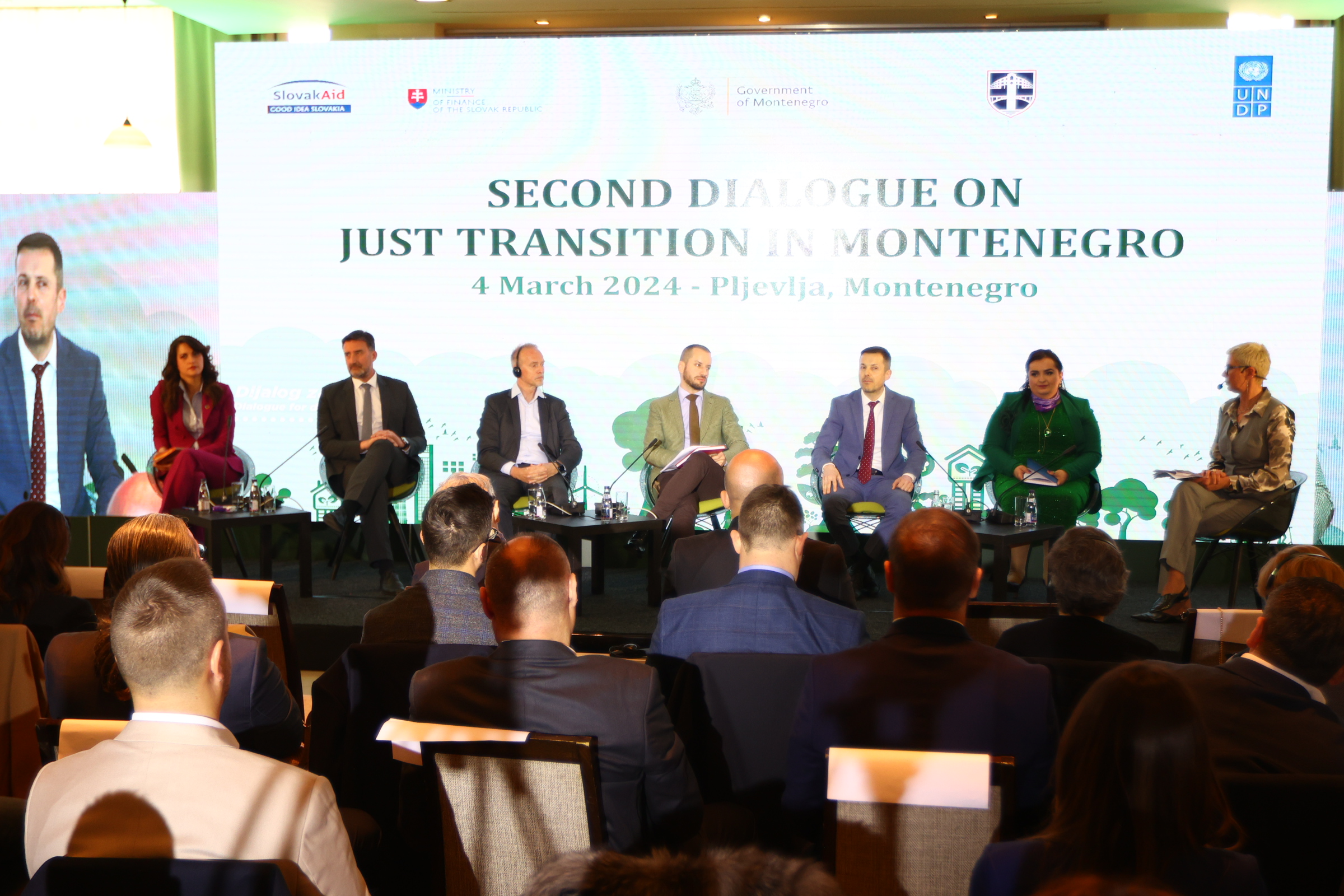
The process of a just transition, to be successful, must consider the needs of communities and people. Priorities at the local and national levels need to be translated into clear, financially sustainable, and attractive projects for investors, which will create infrastructural support for workforce retraining, capacity enhancement, and further socio-economic development of Pljevlja and Montenegro.
A just transition must be coordinated and planned through continuous and open dialogue, focusing on multiple priorities: investing in new energy sources to gradually replace coal, adopting laws and strategic documents with an emphasis on increased use of renewable energy sources, ecologically reconstructing the Thermal Power Plant, heating of Pljevlja, as well as promoting innovation and creating green jobs to contribute to improving the quality of life in Pljevlja.
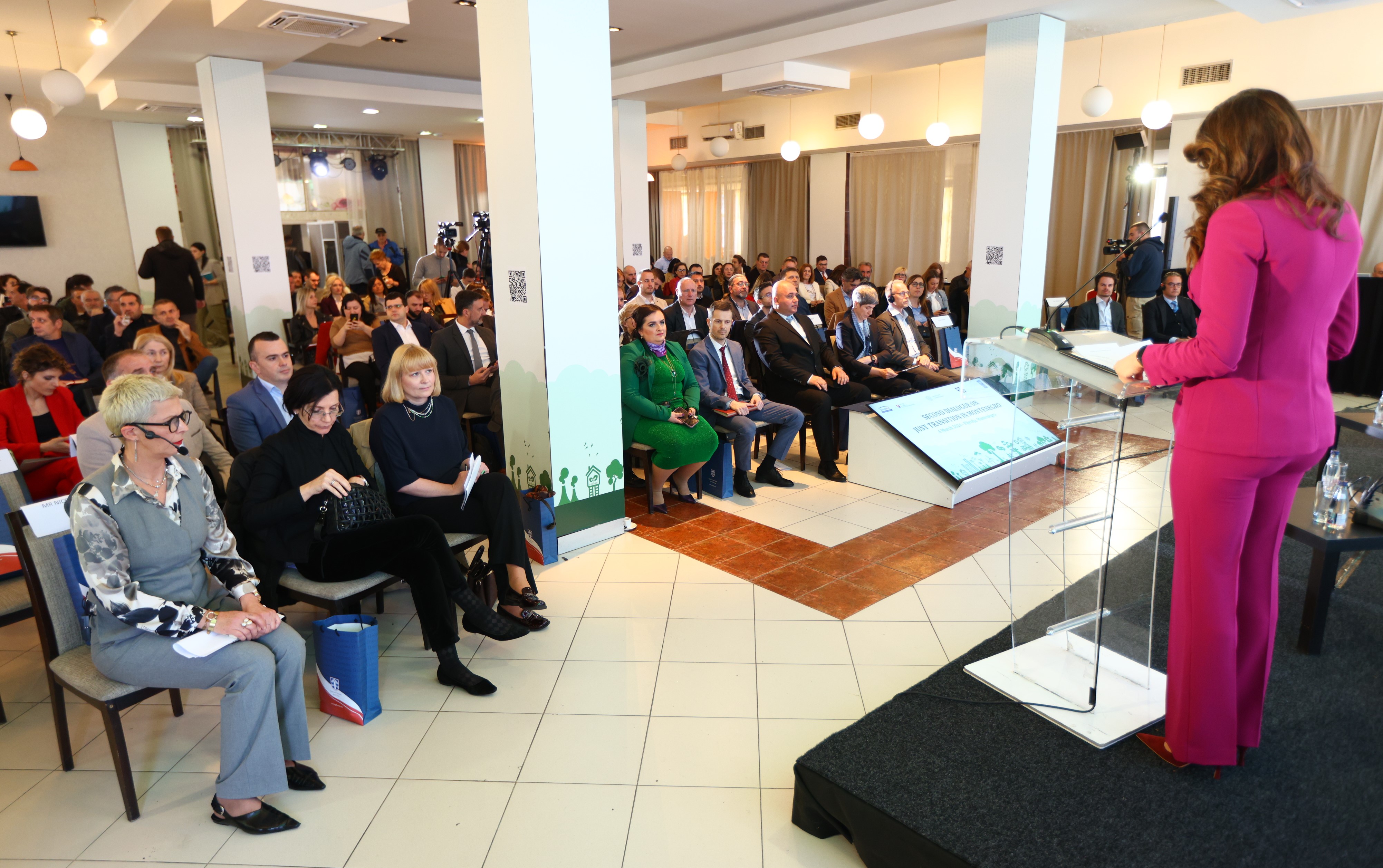
This was concluded at the “Second dialogue on just transition in Montenegro”, organized in Pljevlja by the National Council for Sustainable Development of the Government of Montenegro (NSOR) and the United Nations Development Programme (UNDP) in Montenegro, in partnership with the Ministry of Energy and Mining and the Municipality of Pljevlja.
It was emphasized that the EU growth plan offers opportunities for Western Balkan countries aspiring for membership to leverage support for reforms and accompanying investments to ensure tangible benefits for citizens, which are essential to maintain trust in this process.
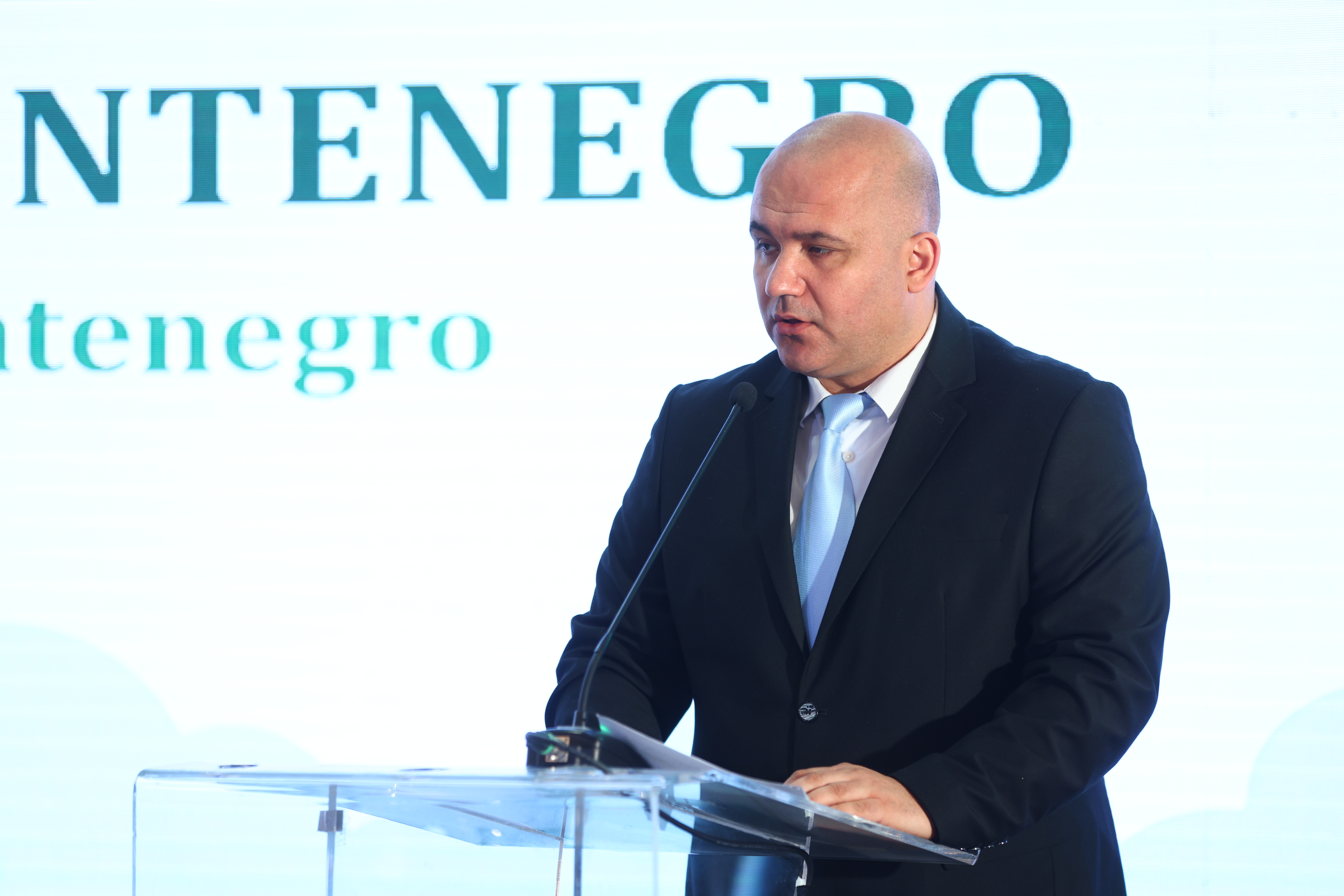
The President of the Municipality of Pljevlja, Dario Vraneš, emphasized that local communities often feel the impacts of economic and environmental changes first, making their empowerment imperative. This enables them to actively participate in decision-making processes and shape the transition according to their needs and unique circumstances.
“The key measures on this path include support for education and retraining of workers, diversification of local economies, investment in infrastructure, establishment of employment opportunities, income support, and transitional assistance, community involvement and participation, as well as the creation of just transition funds.”said Vraneš.
He emphasized the cooperation with UNDP, which is reflected in exceptionally high-quality projects positively evaluated by the population of Pljevlja, including the energy efficiency measures project, which is unique in Montenegro.
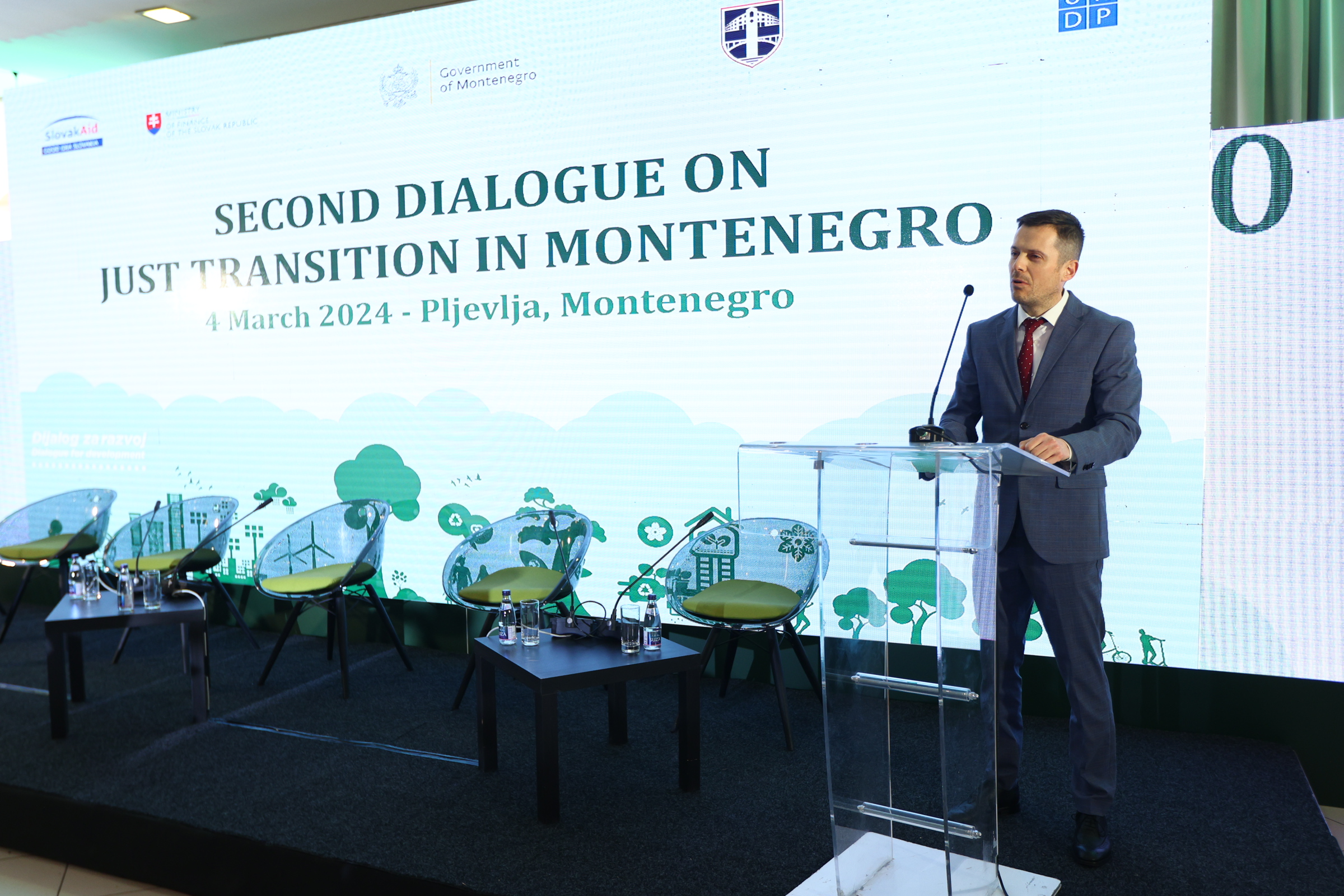
As emphasized by the Minister of Energy and Mining, Saša Mujović, for the European dream to become a reality, changes are necessary. Montenegro, on its path to the EU, has its obligations, one of which is to reduce CO2 emissions by 55% by 2030 compared to the reference year.
“This city is particularly important because we are aware that the largest contributors to gas emissions are precisely the thermal power plant and private heating facilities in Pljevlja. The Pljevlja Thermal Power Plant and the Coal Mine are two energy entities that sustain this city; it would be difficult to move forward without them. However, Pljevlja has been identified as one of the most polluted cities with a high incidence of lung diseases, leading us to a completely different perception and question of whether coal is sustaining or harming Pljevlja. Let’s turn to new sources and find a healthy alternative. The point is not to generate money and jobs at the expense of making the environment unhealthy. I openly say, on behalf of the Ministry of Energy and the Government of Montenegro, that we are fighting and will continue to fight to prolong the lifespan of the Thermal Power Plant as much as possible, but in a way that does not abuse the support of our partners. Instead, we must prepare thoroughly and replace the thermal power plant, which will not be easy – for economic, social, and other reasons. We must proceed carefully in this process.”said Mujović.
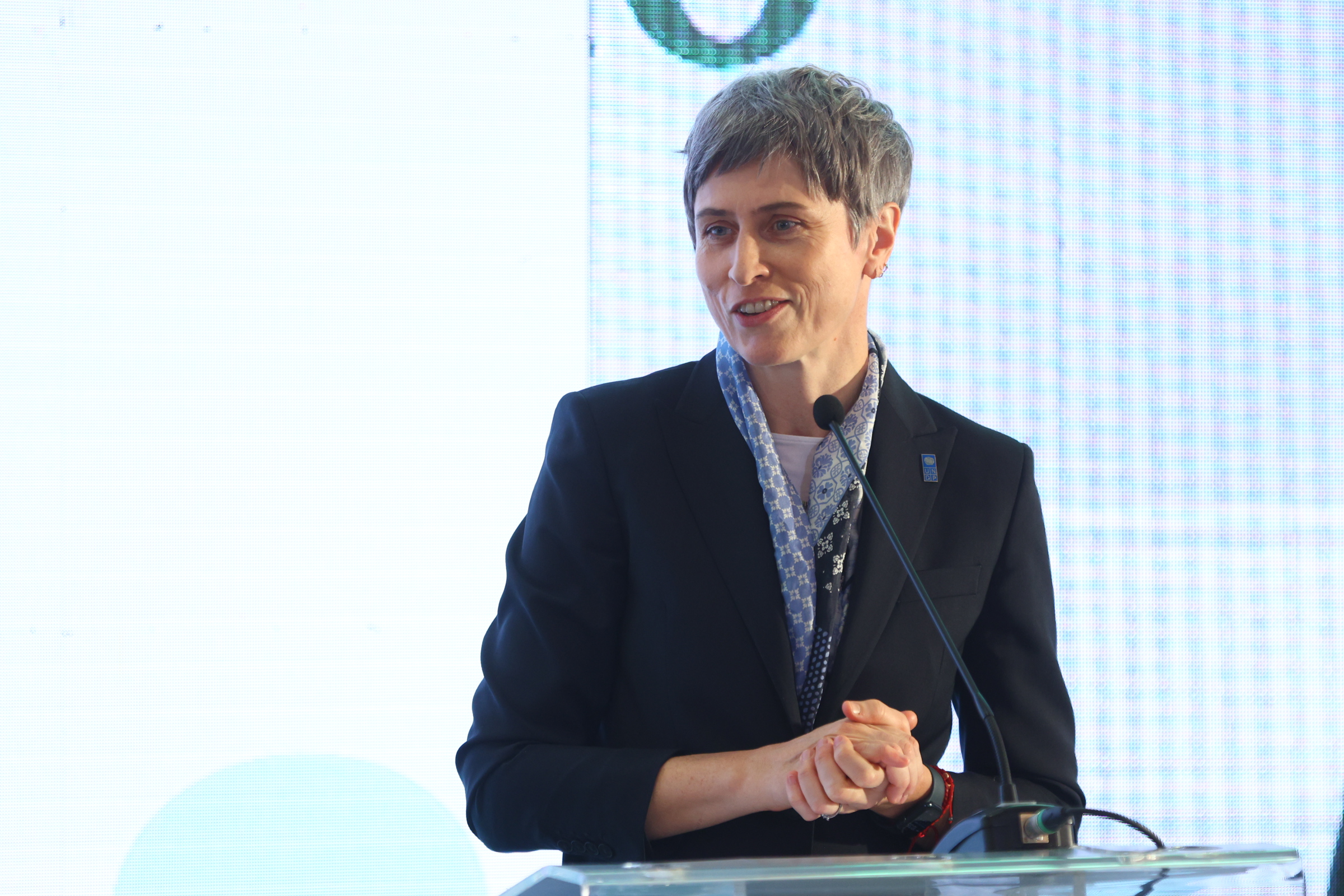
Ekaterina Paniklova, UNDP Resident Representative in Montenegro, pointed out that the transition, if managed well, can encourage the creation of green jobs, promote social justice and eradicate poverty.
“The development of Pljevlja local community has been based on the coal value chain for decades, which employs more than a third of the total number of employees in Pljevlja. Nevertheless, the fact that around 86% of young people from Pljevlja are considering leaving due to a lack of perspective emphasizes the urgency of creating a strategy for the future. Considering the additional factor that women make 60% of the total unemployed population in Pljevlja, it becomes evident that a successful transition is imperative to unlock it at the national and municipal level. This requires a clear vision for leveraging potential and resources, diversifying the economy, and implementing robust retraining programs. UNDP remains a strong partner and supporter of Montenegro in the continuation of this process”, said Paniklova.said Paniklova.
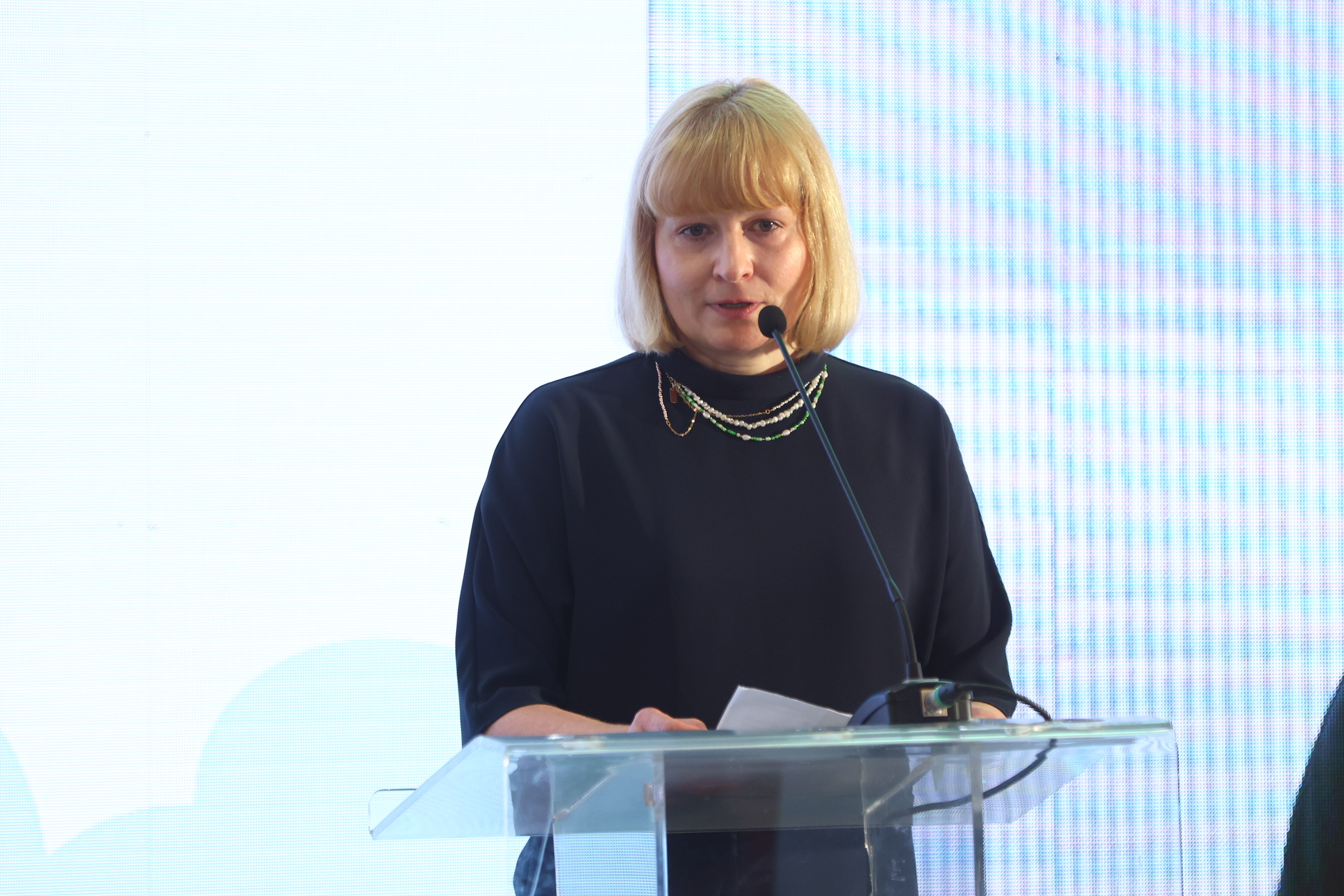
Just transition is not a unique process for Montenegro. Other coal regions have taken this path or even crossed it, which is also confirmed by the experience of the Slovak Republic, whose experience could be used and adapted to Montenegro as well. The deputy ambassador of the Slovak Republic in Montenegro, Martina Poikansová-Nedbalová, recalled the long-term support of the Slovak Republic to Montenegro in several areas, such as setting up effective management of public finances, supporting the development of solar energy, and also in the process of decarbonization and planning a just transition with a focus on ecological and social components.
The development of the Roadmap for a just transition began with the support of the Slovak Ministry of Finance, and Poikansová-Nedbalová emphasized that the embassy will continue to support these processes and ensure that Slovak experience is transferred to the process of transformation of Montenegro.
The event was organized held within the framework of the “Roadmap for a just transition for Montenegro” project and the “City Experiment Fund” project, with support of the Ministry of Finance of the Slovak Republic.
Read more about the first Dialogue for Just Transition in Montenegro here.

 Locations
Locations










